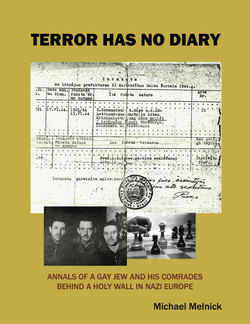Читать книгу Terror Has No Diary - Michael Melnick - Страница 5
На сайте Литреса книга снята с продажи.
FOREWORD
ОглавлениеZachor…remember. Remember that you were a slave in Egypt, that you stood at Mt. Sinai, that you were attacked from behind by Amalek, that Haman sought to kill you, that you were exiled from your land by the Romans, that you were massacred in the Ukraine; in the Jewish experience there is no end to remembering, it is central to it. Indeed, it was ancient Israel that proposed history as decisive and introduced a world-view that human history provided meaning to Divine revelation and purpose. Still, historiography, a precise chronicle of historical events, an immanent understanding of recorded events, has been largely alien to the way in which Jewish collective memory has been addressed or evoked.2
Thus, the primary custodian of Jewish collective memory is not the historian. It is the storyteller, just as it is among most other ancient peoples. This Jewish midrashic tradition, and by extension the central Jewish experience, filters the facts to arrive at the truth by a functional dynamic that relies on the way events are seen (or imagined) by those who participated in them. In essence, the central Jewish experience is a transcendent history in which not all “facts” are meaningful or worthy of detailed recollection, and not all poetic evocation’s are fictions. This history is literary history, or what contemporary writers refer to as narrative nonfiction, using strategies and devices of the novel to distill the truth of the matter from the fact of the matter. The story recounted here is told very much within this ancient tradition.
If you, the reader, venture beyond this introduction to the narrative, you will be accompanied by a most remarkable narrator, Kalman Linkimer. When the Germans invaded the Baltic port city of Libau, Latvia, Kalman was just shy of 30. He was already a veteran of the Latvian army, a broadly educated teacher and poet who tutored wealthy gymnasium students, and an habitué of cafes where he endlessly played chess, consumed espresso, and smoked cigarettes. He was also Hitler’s nightmare…a gay, religious Jew who was an avid socialist.
Avishai Margalit has made a very important observation: “The notion of reliving the past involves, I believe, various ideas about remembering emotions and especially about remembering emotions with respect to the events and the people remembered. It is not only the sense of the past that we try to recover in our memory but its sensibility. What was it like to be in that situation or with those people there and then?”3 Conveying the sensibility of evil events, say the transcendent history of the Holocaust (Shoa), requires a special agent of collective memory, what Margalit terms the moral witness. He proposes Anna Akhmatova (1889-1966)4, the Russian poet, as the paradigmatic moral witness:
No foreign sky protected me,
no stranger’s wing shielded my face.
I stand as witness to the common lot,
survivor of that time, that place.
"Requiem 1935-1940”
Thus, the paradigmatic moral witness is one who witnesses and experiences both evil and suffering; one or the other is not enough. A moral witness is one who clarifies the endless night of murder, torture and humiliation inflicted by evil actors entirely empty of empathy. The moral witness transmits the pain of evil to those who were not there.
Kalman Linkimer is a moral witness. Not protected by a virtuous social contract, Kalman throws off the mask of the gentle aesthete and exposes his true grit. His emotions and his assertions are no longer parallel, they intersect. He concedes to no one the mission of storytelling; he is consumed with a clear sense of being a witness. Kalman Linkmer is not a tzadik (saint), he is a moral witness.
